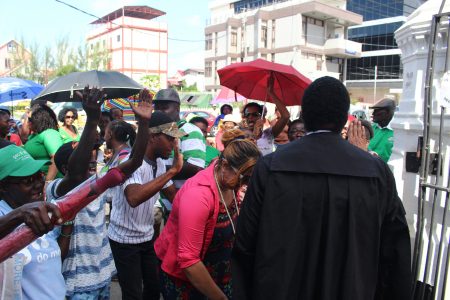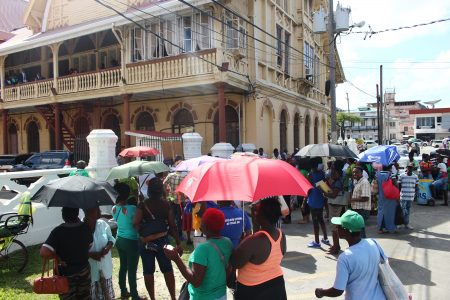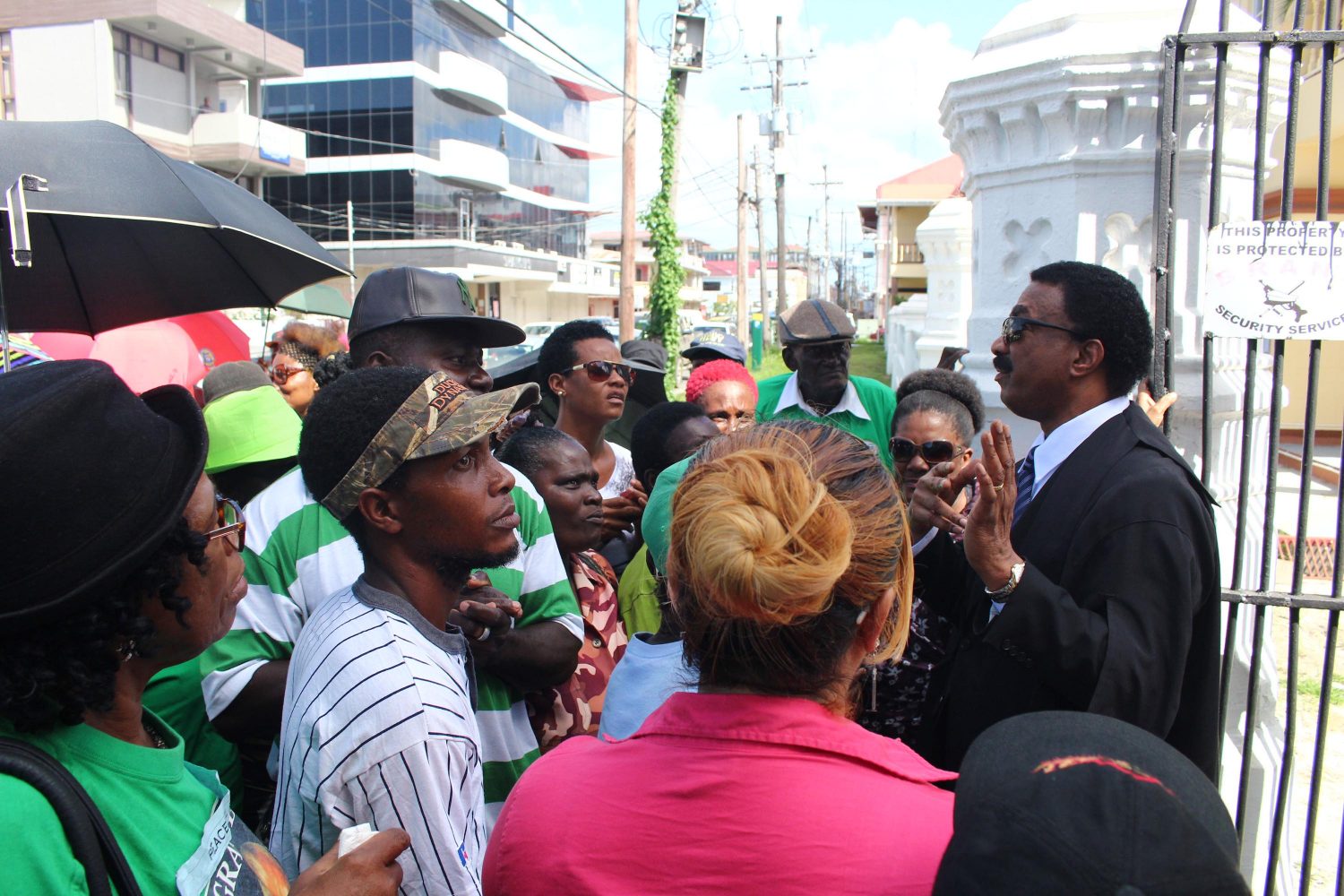At the first hearing of the opposition’s challenge to President David Granger’s appointment of retired Justice James Patterson as Gecom Chairman, Chief Justice Roxane George issued a stern warning to both sides to refrain from trying the case “in the court of public opinion.”
At yesterday’s hearing, the court set out the trial timeline. The opposition (Applicant), has until December 1 to file responses to the government’s (respondent) affidavits. Thereafter, it is to reply, if necessary, by January 3 of next year. The matter will then be called again two days later for any clarifications and oral arguments there may be.
Thereafter, the Chief Justice indicated that a date will be fixed for decision.
In a courtroom that was packed to capacity, Justice George said that while the general public has a right to comment and voice opinion on the case, it is the court that has to give a decision in the final analysis.

Against this backdrop, she sounded the warning to counsel on both sides to ensure that they do not become caught up in trying the case in the court of public opinion.
She further cautioned the attorneys to be very careful also when they speak to the press concerning the matter, while noting that she does not want to have to issue a gag order.
As those gathered in the public gallery listened quietly and intently, there were nods of approval as the Chief Justice reminded that persons have their right to make comments, but to beware of them becoming borderline contemptuous.
It was occasionally difficult to hear what the judge had to say during the proceedings, as scores of government supporters had gathered on the streets outside of the courthouse. The crowd belted out several chants for Anil Nandlall, who is representing the opposition, to show himself.
The noise could be heard as the doors of the courtroom had be kept open because the air conditioning unit was not functioning.

Amidst the ruckus they created on the outside, the crowd shouted praises for Attorney General (AG) Basil Williams, who was present at yesterday’s hearing for the government.
At least one person carried a placard. The man, clad in African garb, shouted for the opposition to give the government a chance to do its job. The sentiment was echoed by the other supporters.
After momentarily quieting down, the crowd suddenly erupted into an uproar as Nandlall emerged from the courtroom in the company of longstanding PPP/C member Kwame McCoy.
The crowd hurled a number of insults towards both men.
The disturbance they created was only quelled after Williams hurried down and reminded them that they were at the courthouse, just outside the Chief Justice’s office and could not be as loud as they were. They immediately complied and many joyfully hugged the AG, while listening carefully as he spoke.
The demonstrators, who seemed to have gotten the time for the hearing wrong, had quietly assembled outside the court since 9 yesterday morning. They, however, lined the pavement and braved the scorching sun, with some seeking shelter under a mango tree at the nearby City Hall on Charlotte Street, as they patiently awaited the 1.15 commencement of the hearing.
It was the noise created by the crowd upon Nandlall’s arrival, which caused many to become aware that they had gathered in connection with the case.
The opposition’s application was filed in the name of PPP executive Zulfikar Mustapha, who is seeking the annulment of Patterson’s appointment.
The state is being represented by the AG, in association with a battery of lawyers including Solicitor General Kim Kyte, Judy Stuart-Adonis and Onika Archer-Calder
Meanwhile, the opposition’s legal team comprises Nandlall, along with attorneys Priya Manickchand, Manoj Narayan and Euclin Gomes.
Patterson was sworn in as Chairman of the Guyana Elections Commission (Gecom) on October 19, two and a half hours after Granger met with opposition leader, Bharrat Jagdeo, informing him of the rejection of a third list of nominees he had submitted, and about his selection of Patterson.
The unilateral appointment of the judge, which both Granger and the AG have sought to defend, has seen widespread condemnation from civil society.
The opposition’s application contends that the president has no power to make a unilateral appointment once a list of six names is submitted to him, while noting that he failed to give reasons for naming the 18 nominees is unacceptable. “In all the circumstances, the exercise of the President’s discretion and the decision which has resulted therefrom is unreasonable, arbitrary, capricious, procedurally improper, unconstitutional, influenced by improper motives and made in bad faith,” it says.






